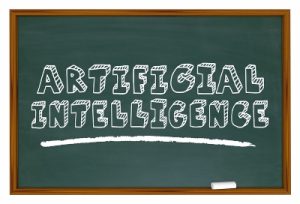
With each passing school year, teachers of kindergarten through college classes have dealt with the increasing ubiquity of AI in their students' lives. The mass availability of AI tools initially caused educators great concern. Would students use AI to cheat or find shortcuts on tests and homework? Would AI eliminate the need to learn certain skills, the way widespread GPS use reduced the need for map reading. However, many educators have risen to the challenge of AI's presence and influence by embracing it as a learning tool.
Deepening the Learning Experience
AI tools have made curriculum materials more available and accessible to educators, allowing them to expand beyond simple question-and-answer worksheets. Now, they can use AI to create more personalized lessons, allowing each student to complete assignments that correspond with both their deficiencies and their strengths. If a student is struggling to understand a concept, the teacher can direct them to online chatbots and tutors that will help explain the concept in different ways. Teachers can also use question generators to create custom assessments, helping them more accurately measure students' knowledge by coordinating the assessments with their individual learning styles.
The Mesquite, TX, Independent School District has implemented AI that utilizes student data-- including grades, test scores, extracurricular participation, and writing--to build a holistic student profile that helps teachers see students in new ways and deliver more personalized learning.
Improving Parent Involvement
Parent engagement is a huge contributor to the success of individual students and to schools as a whole. Schools have implemented a long list of technology tools to improve communication with parents, from portals to apps to texting, but often, resulted in information overload. AI, however, holds the promise to streamline and personalize communication in ways that are more efficient for both parent and teacher.
The Mesquite, TX, independent district utilized AI for this challenge as well, using the same student data teachers receive to also send parents select information about school and community programs, events, and resources that meet the specific needs and interests of each student. These automated lists, pulled together by AI, can be quickly vetted by teachers.
Treating AI as a New Subject
With AI becoming a tool in nearly every field of work, schools are seeing the need to educate students on the safe and ethical use of the technology. Use of AI is no longer just in computer science classes; rather, it is being woven into curriculums for every subject. Students are being challenged to question the bias that exist within an AI's methodology and results. They are being taught how to cite and use data from AI tools in ways that avoid copyright infringement or plagiarism accusations.
Educating EdTech
Of course, as the use of AI tools increases, technology vendors will rush to fill demand. The U.S. Department of Education (DoE) is getting in front of potential issues by issuing a set of guidelines for developers, "Designing for Education with Artificial Intelligence." The report details how to create trustworthy tools that enhance, rather than replace, the existing learning experience. Tips include:
- Keep teaching and learning as the main priority by aligning products with education-specific values and visions
- Work to close gaps in equity and bias
- Ensure protection of students and their data
- Demonstrate transparency in product design and function
To stay on top of the quickly evolving use of AI in the classroom, check out these resources from GovEvents and GovWhitePapers.
- Evolve 2024 (October 9-10, 2024; New York, NY) - Stay ahead in the rapidly evolving world of data and AI. Uncover the infinite possibilities of trusted data today for tomorrow's AI.
- Kansas City - Learning Logistics & Tech Tour '24 (October 10, 2024; Belton, MO) - Hear new perspectives, based on national research, about everything from chronic absenteeism, to how much time teachers spend on duties they needn't, to what the teacher shortage really means--plus much more.
- ASCD Leadership Summit (October 18-20, 2024; Nashville, TN) - This event nurtures education leaders by creating a platform and community to connect, learn, and strategize. With 100 professional learning sessions, gain powerful new approaches to help your team solve its most pressing challenges.
- EDUCAUSE Annual Conference 2024 (October 21-24, 2024; San Antonio, TX) - Professionals and technology providers from around the world gather to network, share ideas, grow professionally, and discover solutions to today's challenges.
- Innovation in Education: The Dark and Light Side of Artificial Intelligence (white paper) - As AI's potential for good and bad rapidly evolves, higher education weighs AI's risks and benefits while reshaping and prioritizing cybersecurity strategies to mitigate today's threats.
- Five Ways Higher Education Can Leverage Generative AI (white paper) - Recent advancements in generative AI and the rise of ChatGPT, Bard, and many other models have catalyzed a new wave of interest in the field of artificial intelligence and its potential impact on a variety of sectors. Few will be more impacted than higher education, with its focus on research and the creation and transmission of knowledge and skills.
For more on AI use in K-12 and Higher Education visit GovEvents and GovWhitePapers.


